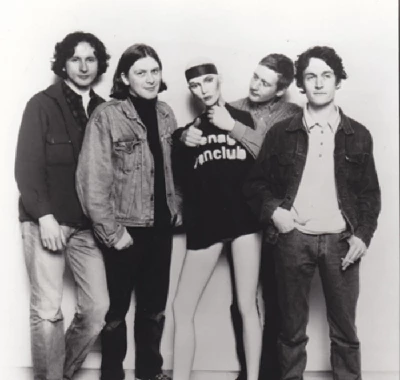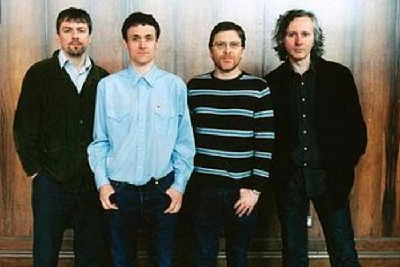published: 20 /
7 /
2011

Andy Cassidy examines Teenage Fanclub's 'Deep Fried Fanclub', a 1995 B-Sides and rarities compilation, which is about to be reissued
Article
The first time I ever heard Teenage Fanclub was July 3rd, 1993 when they were supporting Neil Young at Glasgow’s SECC. The first support act, 4 Non Blondes, were insufferable, riding high on the success of the dire 'What’s Up?', and one could almost hear a collective sigh of relief when the Fanclub took to the stage. I don’t remember much of what they played that night, but I remember, a few days later, going into my local record store and buying their album, 'Bandwagonesque'.
At the time, I had no idea of the fuss surrounding Teenage Fanclub. Praise for them, it seemed, was coming from all quarters. Kurt Cobain said that he thought they were the best band in the world. Even the ever-modest Liam Gallagher had a high opinion of them – they were, he said, the second best band in the world (the best being, of course, Oasis). Strangely, though, the critical acclaim garnered by the Fanclub never seemed to translate itself into commercial success (with the exception of 'Thirteen' and 'Grand Prix', their 1993 fifth and 1995 sixth studio albums respectively, both of which briefly entered the UK top ten).
'Deep Fried Fanclub' is a re-release of 1995’s B-Sides and rarities compilation of the same name. For the Fanclub fan, it is a fascinating aural document, highlighting the progress of the band over its first six years.
The album opens with debut single, 'Everything Flows', a catchy power-pop masterpiece in the spirit of Big Star or the Wondermints. With distorted, pounding guitar, it’s a hugely enjoyable rocker, reminiscent of the Gigolo Aunts.
'Primary Education' is a perfect example of a band in transition. Swapping the heavier sound of their first album for a more harmony-driven, Byrds-like sound, this is a clear step in the band’s evolution and although not the best song in the Fanclub canon (and by no means their best performance – the track has a lacklustre feel to it and the vocal harmonies have yet to reach the accuracy of later recordings), it is nonetheless a key step in the band’s progress from grunge to indie.
The self-penned tracks on this album are good rather than excellent, but perhaps that is to be expected from a compilation of B-Sides. For me the most interesting aspect of the album is the inclusion of several cover versions, most notably the Beatles’ 'The Ballad of John and Yoko', Neil Young’s 'Don’t Cry No Tears' and Big Star’s 'Free Again', all of which are treated with respect but interpreted with vision and innovation ('The Ballad of John and Yoko', for instance, is re-imagined as an energetic Joe Strummer-style workout which I’m sure Lennon would have approved of).
The album closes with a heavy, throbbing version of Beat Happening’s 'Bad Seed' which could sit quite comfortably on a Stooges album. The bass line carries the track like the backbeat to a shamanic ritual – this track is intended to be played loud.
All things considered, this is something of a patchwork album, made up of recordings from different periods in the Fanclub’s career and of varying quality. On account of this unevenness, I personally do not think that this is an album I would go back to very often. Certainly, the covers are excellent, but they could have been put together as a fantastic EP rather than a mediocre album. If you are a Fanclub completist, then you will probably buy this album and be very happy with it. It is not, however, an album for the casual listener, and would be a poor choice to serve as an introduction to the band - 2003’s 'Four Thousand Seven Hundred and Sixty-Six Seconds' would be a far better place to start your Fanclub journey.
Track Listing:-
Band Links:-
https://www.facebook.com/teenagefanclu
https://twitter.com/teenagefanclub
http://www.teenagefanclub.com/
Picture Gallery:-

